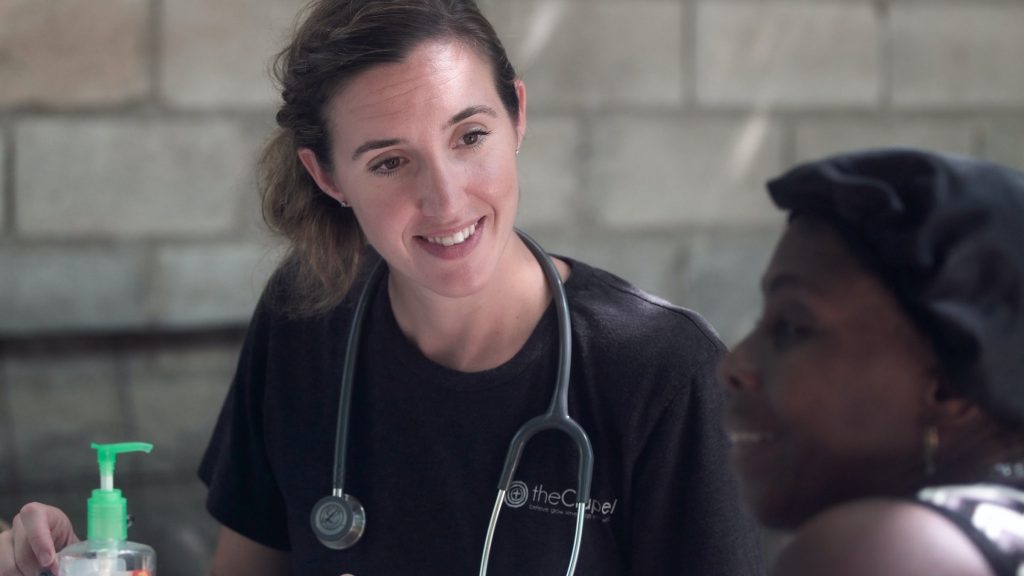Becoming a CNA is a lucrative and rewarding career. It also happens to be one of the fastest-growing careers in the healthcare industry. If you want to help people and get started sooner rather than later, getting your CNA certification can open doors in your healthcare career. Today, our team at HeartCert is going to cover everything you need to know to get started as a CNA and get a head start.

What is a CNA Certification?
A CNA, also known as a certified nursing assistant, is a medical professional who assists nurses in hospitals. When there are multiple patients on rotation, having a CNA on hand can speed up the process and ensure every patient is getting the care they need.
What are the duties and responsibilities of a CNA?
CNAs are responsible for direct, hands-on patient care—everything from bathing, dressing, and feeding to monitoring and reporting on vital signs. Taking patients’ temperatures, determining pulse, and checking out respirations are all things that might fall under typical CNA duties and responsibilities.
Related Content: A Day in the Life of a CNA: What to Expect in This Rewarding Career
What is the average salary for a CNA?
The average salary for a CNA is $39,430, according to the U.S. Bureau of Labor Statistics.
What’s the job outlook for a CNA?
The U.S. Bureau of Labor Statistics states that between now and 2034, CNA positions are expected to grow 2% every year, or 211,800 new openings annually.
Related Content: Why Should I Become a CNA?
How Long Does it Take to Get CNA-Certified?
Most CNA classes last around 4-12 weeks, though some might finish in less time or take a little longer, depending on which provider you go through.
Here at HeartCert, we offer training options ranging from as little as 5 days to up to two weeks if you need classes more spread out. Using a blend of online training and in-person learning, we aim to make the course as easy as possible with locations around the Midwest—in Minnesota and in Iowa.
Related Content: How Long Does CNA Training Take?
What are the typical CNA requirements?
To sign up for CNA courses, students must be 16 years of age or older. While it’s not required to get your CNA license, it’s highly recommended to also have basic life support certification (BLS) since a lot of employers require it.
Related Content: Starting Your CNA Training: What to Know Before You Begin
What’s the CNA certification exam like?
After finishing your CNA classes, the CNA exam includes a written exam of 70 multiple-choice questions. Each of the questions is based on physical care skills, psychosocial care skills, and nurse aide responsibilities.
Where can I find state-approved CNA programs?
You can find state-approved, Red Cross-accredited CNA programs in your area through a simple search.
Related Content: How to Find the Best CNA Training Program
If you live in Minnesota and are hoping to find an accredited program, HeartCert offers accredited courses for the Twin Cities and surrounding areas. If you’re hoping to get a head start on your nursing career, sign up for classes before spots are filled.
CNA Nursing Pathway
After getting your CNA certification, you might later decide to pursue the nursing pathway. If you’re heading in that direction, you may have a few questions on how to become an LPN or RN.
How does CNA experience help you become an LPN or RN?
CNA experience offers invaluable hands-on practice that can be useful later for clinicals and retaining information for your LPN and RN certification.
Many times, people with the end goal of becoming a nurse will start with their CNA certification before moving up the ladder. The experience allows them to see if the career is what they want to do long-term and helps them get invaluable hands-on practice.
What are the different work settings for a CNA?
While a hospital is the most well-known work setting for a CNA, they can also be found in various other work settings, such as nursing homes, assisted living facilities, clinics, and even home health care.
How to Start Your Career as a CNA
Not sure how to start your career as a CNA? If you’re hoping to open doors in your healthcare career by getting your CNA certification, there are various options available. The key is to find a Red Cross-accredited course like the ones offered at HeartCert.
If you’re in Minnesota and other nearby states, HeartCert offers quick, easy hybrid courses with both online and in-person options available. Ready to get started?
Sign Up Today Before Spots are Filled
HeartCert is your trusted training partner for CPR, ACLS, PALS, EMR, First Aid, CNA, TMA, IV, EKG and more, throughout the United States.
Courses include CPR/AED/First Aid, Basic Life Support (BLS), Advanced Cardiac Life Support (ACLS), Pediatric Advanced Life Support (PALS), Certified Nursing Assistant training, IV training, EKG training, babysitter basics and more. Courses and certifications from both the American Heart Association and American Red Cross are available.We offer virtual courses and certifications, in all 50 states as well as in-person classes at our headquarters, HeartCert CPR Eagan and major cities in Iowa, Illinois, Michigan, Minnesota, Missouri, Mississippi, Nebraska, Pennsylvania, Texas and Wisconsin.








